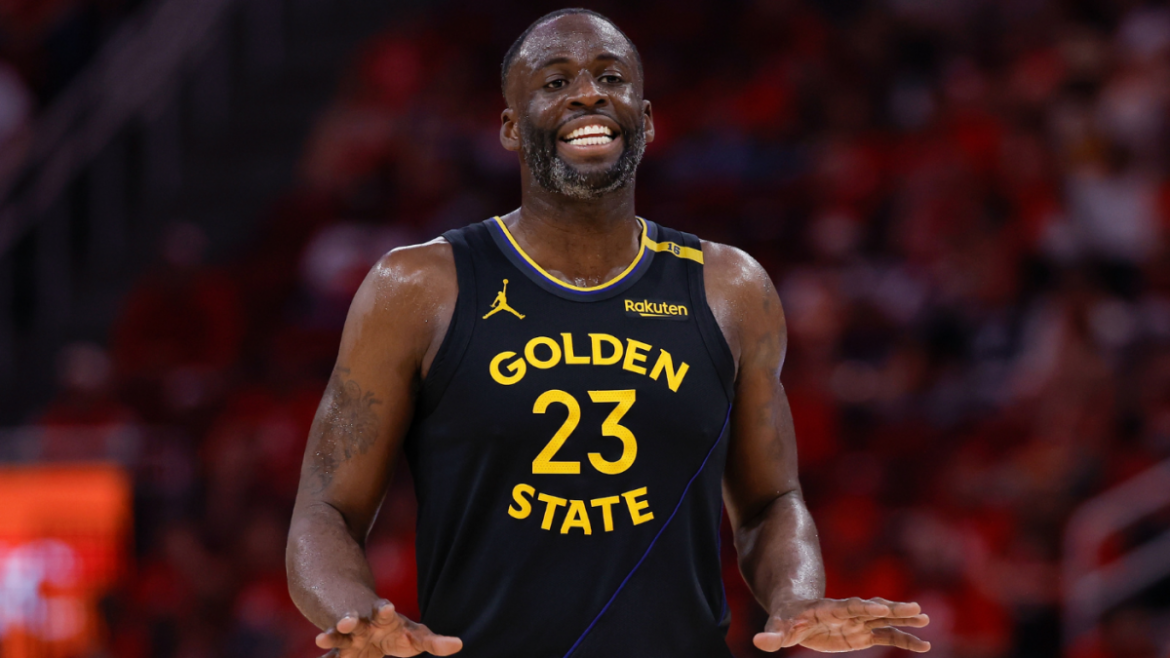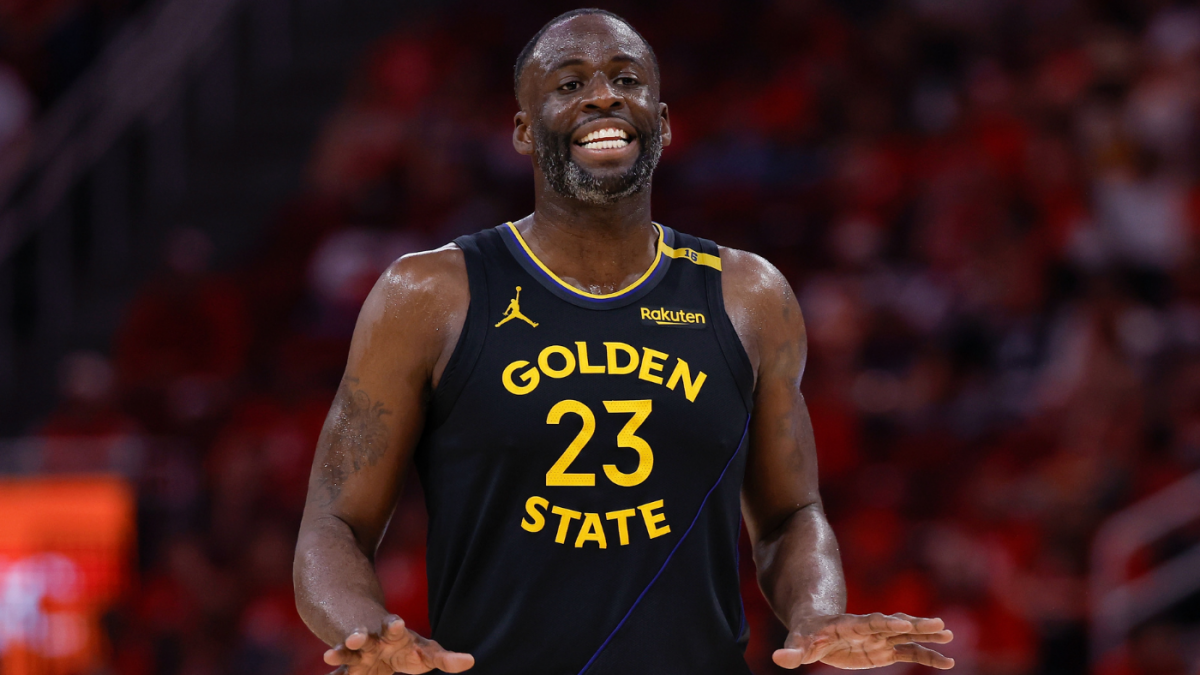Analyzing the Recent Disciplinary Actions and Controversies Surrounding Draymond Green of the Golden State Warriors
Introduction
In the highly competitive and emotionally charged world of professional basketball, player conduct can significantly influence public perception, league policies, and individual reputations. Recently, Draymond Green, a pivotal figure for the Golden State Warriors, has been at the center of multiple controversies stemming from his on-court comments and sideline behavior. These incidents have culminated in a substantial disciplinary measure— a $50,000 fine imposed by the NBA. The details surrounding these events highlight a recurring theme: the tension between player expression and league enforcement of conduct standards. This analysis delves into the nature of Green’s comments, the league’s response, and the broader implications on player conduct and transparency within professional basketball.
The Context of the Incidents
Draymond Green’s recent actions span multiple occasions but are most prominently associated with Game 3 of the Warriors’ Western Conference semifinals series against the Minnesota Timberwolves. During this game, Green was fined for making an “inappropriate comment” questioning the integrity of game officials, referencing the betting spread with around 15 seconds remaining in the game. The specific comment— a mention of “five and a half,” aligning with the point spread— appeared to be an oblique critique of officiating decisions, possibly implying bias or undue influence connected to betting lines.
The NBA’s response was swift and unequivocal. League officials announced a fine of $50,000, citing Green’s comments as violations of conduct standards that prohibit questioning the legitimacy and integrity of officials. This monetary penalty aligns with previous actions where Green has faced league discipline for similar reasons, underscoring a consistent stance on maintaining officiating authority and league decorum.
Unpacking the Nature of Green’s Comments
The comments made by Green are more than mere on-court rhetoric; they touch on sensitive issues: officiating fairness, betting, and potentially, match integrity. The mention of the “spread” and the phrase “five and a half” appear to be references to betting lines, which is a delicate subject in the realm of professional sports due to regulations against gamblers influencing the game’s perception or outcomes.
Green’s comments drew attention not only because of the content but also due to their timing. With just seconds left, trailing by several points, and the series at a critical juncture, such remarks could be interpreted as insinuations of bias or manipulation. This type of commentary, whether intentional or not, risks undermining league authority and fans’ trust, prompting the NBA to act decisively.
Gambling Discussions and Player Responsibility
The incident also surfaces broader concerns about players discussing betting and wagers publicly. While Green’s comments seemed to be a critique of officiating, referencing betting lines can blur the lines between harmless banter, competitive frustration, and potential violations of league policy. The NBA’s strict stance reflects its vigilance against corruption and its commitment to uphold integrity standards.
Historically, the league has heavily scrutinized gambling-related issues. This is evidenced by enforcement of policies that restrict players from discussing or engaging in betting activities that could influence game outcomes or perceptions. Green, as a high-profile athlete, bears additional scrutiny, and league discipline aims to send a message: even seemingly minor comments about betting are taken seriously due to their potential implications.
Prior Incidents and Recurring Patterns
Green’s fine is not an isolated event; it resonates with previous disciplinary actions where he was reprimanded for comments questioning officiating. For instance, in 2018, Green was fined for directing inappropriate language toward officials and for actions that demonstrated dissent or disrespect. These recurring incidents reveal a pattern of Green’s outspoken nature and propensity to challenge authority figures in-game.
While Green’s candidness often garners fan admiration for his honesty and fiery personality, the league emphasizes a standard of professionalism and respect. The fines serve as both punishment and deterrent, reminding players to communicate disputes through appropriate channels rather than public criticism.
Impact on Player Conduct and League Policies
Green’s case underscores the delicate balance the NBA seeks to maintain: allowing players to express their competitive spirit without crossing boundaries that threaten league discipline, integrity, or public trust. The fine’s magnitude— $50,000— reflects the league’s valuation of maintaining authority and consistency. It also highlights the increasing severity with which the NFL and NBA are addressing misconduct related to officiating, betting, and player communication.
Furthermore, the incident raises questions about transparency and accountability. While players have the right to express frustrations, the line is drawn when comments imply misconduct or question the fairness of officials and the game’s integrity. The league’s proactive approach suggests an evolving stance that emphasizes safeguarding the sport’s reputation and ensuring fair play.
Broader Implications and Future Considerations
This situation prompts a reflection on how NBA players navigate their expressed opinions within the league’s disciplinary framework. Green’s fines serve as a cautionary tale for other athletes who might be tempted to voice criticisms publicly. As social media and live broadcasts magnify on-court comments, the potential for misinterpretation or league sanctions increases.
The incident also highlights the importance of player education on league policies regarding conduct and gambling. Initiatives aimed at clarifying acceptable versus prohibited speech can foster a more informed athlete community, reducing inadvertent violations.
Moreover, the controversy sparks an ongoing debate about the role of player expression. Is the league stifling candidness, or is it necessary to uphold standards of professionalism? The balance between free expression and league discipline remains a nuanced issue, with Green’s case exemplifying the stakes involved.
Conclusion: Upholding Integrity in Modern Basketball
Draymond Green’s recent $50,000 fine encapsulates the complex dynamics between athlete expression, league discipline, and maintaining the integrity of professional basketball. While Green’s outspoken personality and candid comments resonate with fans who appreciate authenticity, the league’s response underscores the importance of safeguarding the sport’s credibility and fairness.
This incident serves as a reminder that even high-profile athletes must navigate their words carefully within the confines of league policies. It reinforces the notion that respect for officials, transparency, and responsible communication are essential components of sportsmanship in the modern era.
In the larger picture, Green’s situation reflects an evolving landscape where sports leagues are increasingly vigilant about issues beyond the game itself— including officiating credibility, gambling implications, and public trust. Moving forward, the challenge lies in fostering an environment where athletes can express their competitive spirit without compromising the sport’s integrity. Green’s experience highlights the importance of professionalism, the significance of league policies, and the ongoing quest to preserve the core values of competitive excellence and fair play in professional basketball.





